
Hungary Work Permit Visa Consultant Kuwait
Types of Work Permits for Hungary
Single Work and Residence Permit
- Most common for non-EU nationals.
- Combines the right to work and reside in Hungary for more than 90 days.
Intra-Company Transfer Permit
- For employees transferring within the same international company to a Hungarian branch.
EU Blue Card
- For highly skilled professionals with higher education and job offers meeting minimum salary thresholds.
Seasonal Work Permit
- For short-term or seasonal work in agriculture, tourism, or related fields (up to 6 months).
National Card
- For third-country nationals who have been residing legally and continuously in Hungary for at least 3 years.
Work Permit Visa Process to Start from Kuwait
Step 1: Employer’s Application for a Work Permit
The Hungarian employer must apply for a work permit on behalf of the employee. The employer must:
- Demonstrate that no suitable local candidates were available.
- Provide detailed documents including a job description, proof of company registration, salary offer, and recruitment evidence.

Step 2: Work Permit Decision
The Hungarian Immigration Authority will review the application. Processing can take 1–3 months depending on the case.
Step 3: Applying for a National Visa (Type D)
Once the work permit is approved, the worker can apply for a Type D national visa at the Hungarian Embassy in Kuwait. Documents needed include:
- Passport
- Copy of the work permit
- Proof of financial means
- Health insurance
- Completed visa application form and photographs
Visa processing time usually ranges from 10 to 20 business days.

Step 4: Arrival in Hungary
Step 5: Residence Card Application (If Applicable)

Key Requirements for Work Permits
Duration of Work Permits and Extensions
- EU Blue Card: Valid for up to 2–4 years, with the possibility of extension. After 18 months, the holder can move to another EU member state under the Blue Card program.
- Seasonal Work Permits: Valid for up to 6 months per year, typically renewed annually.
Special Considerations
- EU Blue Card: This program targets highly skilled professionals, particularly in fields such as IT, engineering, and healthcare. To be eligible, applicants need to meet specific salary and qualification requirements. The EU Blue Card offers additional rights, such as easier mobility within the EU.
- Intra-Corporate Transfer (ICT) Permit: This is for employees transferred by multinational companies. The ICT permit is a fast-track option for managerial and technical roles.
- Seasonal Employment: Citizens of certain countries (such as Ukraine, Moldova, and Belarus) can apply for seasonal work permits with fewer formalities, particularly in agriculture or tourism.

Important Citations and Legal Sources
Czech Ministry of the Interior
- [Czech Ministry of the Interior](https://www.mvcr.cz/mvcren/)
Czech Ministry of Labor and Social Affairs (MPSV)
- [Czech Ministry of Labor and Social Affairs](https://www.mpsv.cz/en)
EU Blue Card Directive
- [EU Blue Card](https://ec.europa.eu/immigration/blue-card_en)
Conclusion
The process of obtaining a work permit for the Czech Republic as a non-EU national involves multiple steps, including employer approval, visa application, and residence registration. With options like the Employee Card, EU Blue Card, and seasonal work permits, there are different pathways for employment based on the nature of the work and the qualifications of the worker. Understanding the application process and meeting the required criteria is essential for a successful work permit application.
For up-to-date and detailed information, always consult the Czech Ministry of the Interior, the Ministry of Labor and Social Affairs, or the Czech Embassy.
